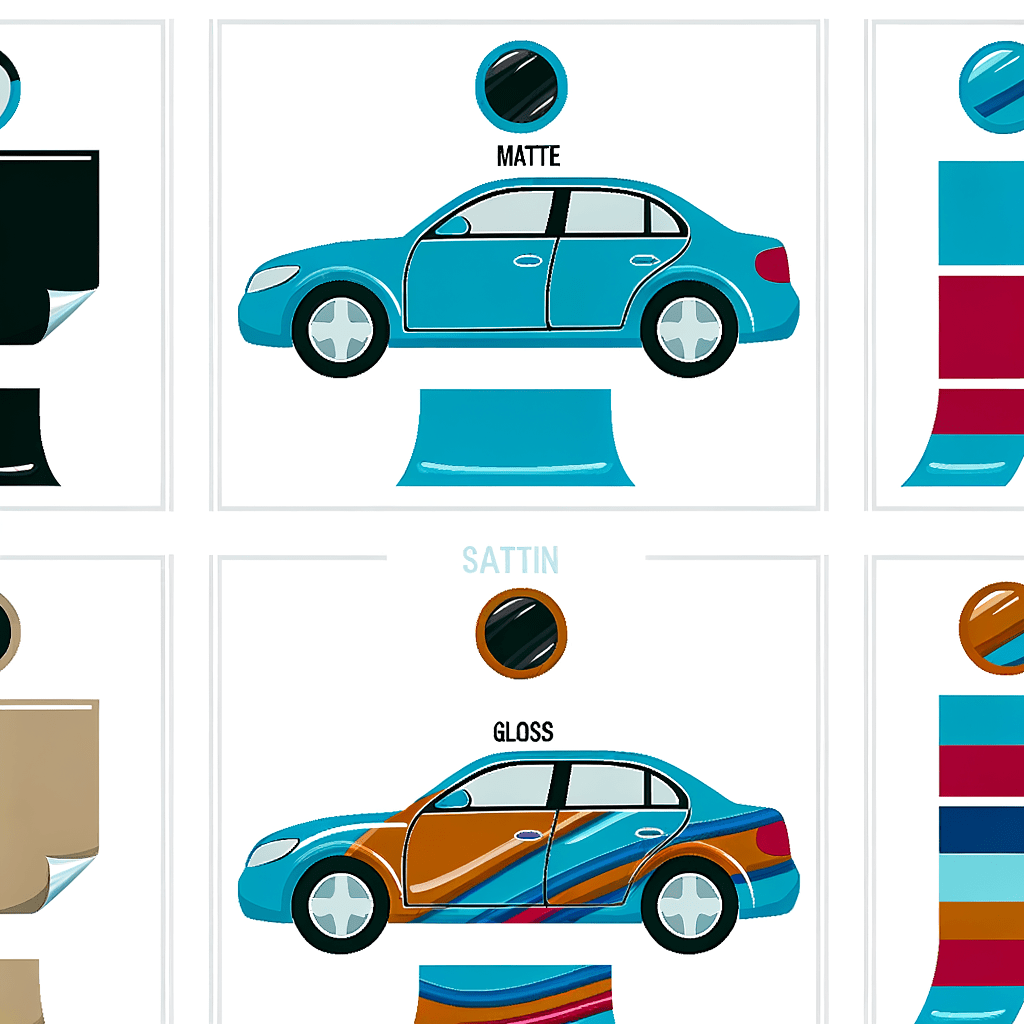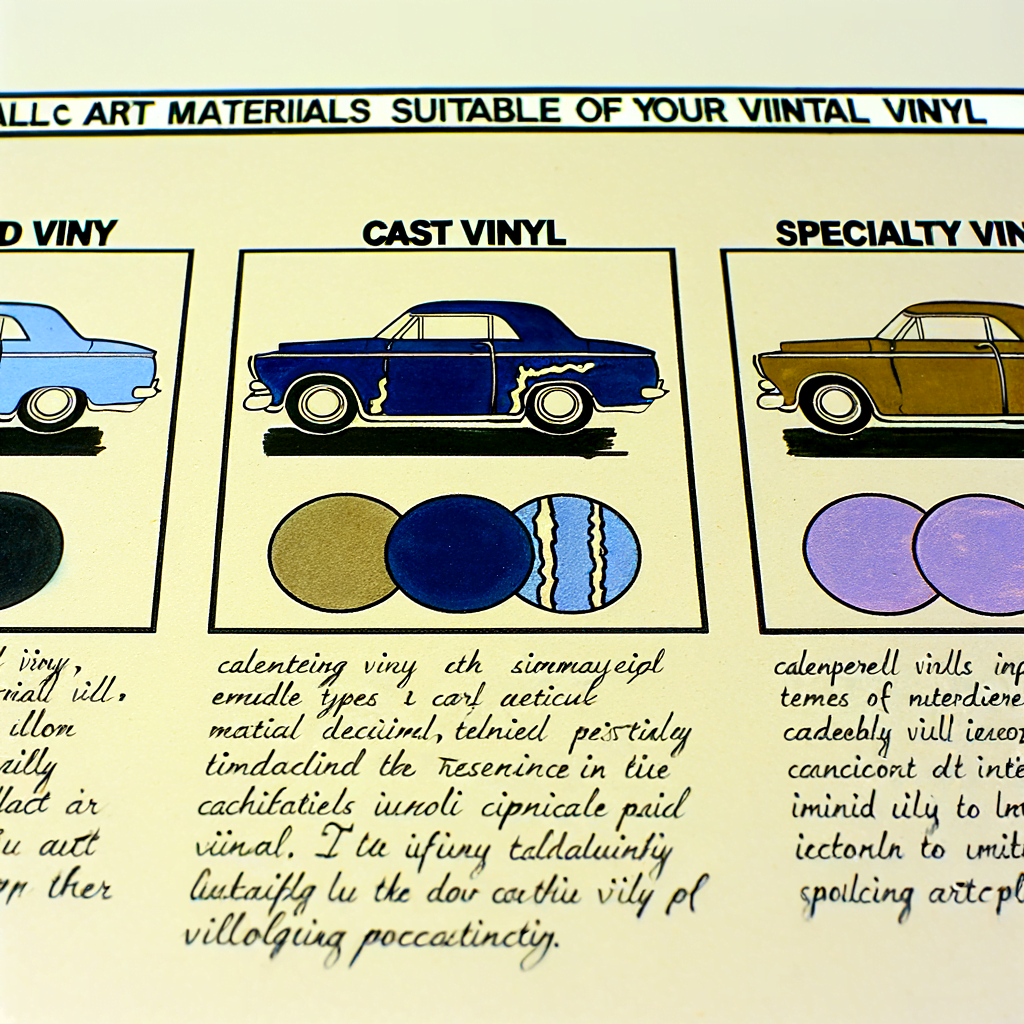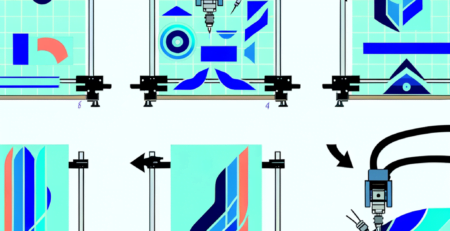Quale materiale in vinile funziona meglio per le decalcomanie per auto?
Sommario
“Durability Meets Design: Premium Cast Vinyl for Supreme Car Decals”
introduzione
Vinyl material for car decals needs to be durable, flexible, and resistant to various weather conditions. The best vinyl for car decals is typically made from premium cast vinyl due to its superior conformability to curves and longevity, often lasting up to five to eight years. Cast vinyl is thinner and more flexible, allowing it to be applied smoothly over the contours of a vehicle and resist shrinkage. For added protection and longevity, car decals can also be laminated. Calendered vinyl, while more affordable, is thicker and less conformable, making it suitable for flat surfaces and shorter-term applications. High-quality adhesive backing is also crucial to prevent damage to the car’s paint and ensure the decal stays in place.
Exploring Different Types of Vinyl for Durable Car Decals
Quale materiale in vinile funziona meglio per le decalcomanie per auto?
When it comes to personalizing vehicles, car decals are a popular choice for many drivers. They offer a way to express individuality, advertise a business, or simply add a touch of style. However, not all vinyl materials are created equal, and choosing the right type is crucial for ensuring that your decal remains vibrant and intact over time. In exploring the different types of vinyl suitable for car decals, it’s important to consider factors such as durability, adhesive quality, and finish.
The most common types of vinyl used for car decals are cast vinyl and calendared vinyl. Cast vinyl is manufactured by pouring a liquid mixture onto a moving web, which is then processed through ovens that evaporate the solvents. The result is a thin, flexible, and highly durable film that can conform to almost any surface, including the curves and contours of a vehicle. This type of vinyl is ideal for long-term applications and can last up to eight years or more, depending on the conditions it’s exposed to. Its ability to resist shrinking, cracking, and peeling makes it a top choice for car decals.
On the other hand, calendared vinyl is made by squeezing the material through rollers, which stretches the vinyl to the desired thickness. This process can introduce memory into the vinyl, causing it to eventually shrink back to its original size, which can lead to peeling and warping over time. Calendared vinyl is less expensive than cast vinyl and is suitable for short to medium-term applications, typically lasting up to five years. It’s a good option for those who like to change their decals frequently or are looking for a more cost-effective solution.
Another important aspect to consider is the adhesive quality. High-quality adhesives ensure that the decal will stick to the car’s surface without causing damage when removed. Some vinyl films come with air-release technology, which allows for easier application by preventing air bubbles and wrinkles. This feature is particularly useful for those who prefer to apply the decals themselves.
The finish of the vinyl also plays a significant role in the decal’s appearance and longevity. Glossy finishes are popular for their shiny, eye-catching look, but they can also show scratches more easily. Matte finishes, while less reflective, can offer a sleek, modern appearance and may hide imperfections better. There are also specialty finishes, such as metallic, carbon fiber, and chrome, which can add a unique touch to your vehicle.
When selecting vinyl for car decals, it’s essential to weigh the pros and cons of each type. For those seeking maximum durability and a professional look, cast vinyl is the superior choice. Its long lifespan and resistance to environmental factors make it a wise investment for both personal and commercial use. For temporary promotions or personal expression that may change frequently, calendared vinyl offers an affordable and versatile option.
Ultimately, the best vinyl material for car decals depends on the specific needs and preferences of the vehicle owner. By considering the factors of durability, adhesive quality, and finish, one can make an informed decision that ensures their car decal looks great and lasts as long as intended. Whether you opt for the premium performance of cast vinyl or the flexibility of calendared vinyl, the right choice will keep your vehicle looking sharp and personalized for years to come.
The Pros and Cons of Various Vinyl Materials for Vehicle Graphics

Quale materiale in vinile funziona meglio per le decalcomanie per auto?
When it comes to personalizing vehicles, car decals are a popular choice for both businesses and individuals alike. They offer a way to display logos, artwork, or messages in a manner that is both eye-catching and durable. However, not all vinyl materials are created equal, and choosing the right one is crucial for ensuring that your decal looks great and stands the test of time. In this article, we will explore the pros and cons of various vinyl materials used for vehicle graphics to help you make an informed decision.
The most commonly used vinyl for car decals is polyvinyl chloride, better known as PVC. This material is favored for its versatility and economic efficiency. PVC vinyl comes in two main types: calendared and cast. Calendared vinyl is thicker and less expensive, making it an attractive option for short-term applications or promotional use. It is manufactured by pressing the vinyl material into a flat sheet, which can lead to inconsistencies in the material’s composition. Consequently, calendared vinyl is more prone to shrinkage and may not conform as well to the curves and contours of a vehicle, potentially leading to peeling or cracking over time.
Conversely, cast vinyl is the premium choice for car decals. Produced by pouring the vinyl into a mold and allowing it to cure without added stress, cast vinyl boasts superior durability and flexibility. This material can last up to seven years or more, even in harsh outdoor conditions, making it ideal for long-term applications. Cast vinyl conforms seamlessly to the vehicle’s shape, ensuring a smooth, paint-like finish that is less likely to lift or peel. However, this high-quality material comes with a higher price tag, which may be a deterrent for those on a tight budget.
Another option to consider is specialty vinyl, which includes materials like reflective, metallic, carbon fiber, and fluorescent vinyl. These materials are designed to create unique effects and stand out visually. Reflective vinyl, for example, is excellent for safety or emergency vehicles because it increases visibility at night. Metallic and carbon fiber vinyls offer a textured, high-end look, while fluorescent vinyl is hard to miss due to its bright colors. The downside to specialty vinyls is that they can be even more costly than cast vinyl and may have a shorter lifespan, depending on the environment and care they receive.
In addition to the type of vinyl, the adhesive used is also a critical factor. Permanent adhesives provide a strong bond that is difficult to remove, which is suitable for decals that are intended to stay in place for the long haul. On the other hand, removable adhesives allow for easier removal without damaging the vehicle’s paint, which is perfect for temporary promotions or for those who like to change their graphics frequently.
Ultimately, the best vinyl material for car decals depends on your specific needs and budget. If longevity and a flawless finish are your top priorities, cast vinyl is the way to go. For short-term applications or if cost is a major concern, calendared vinyl may suffice. And for those seeking to make a bold statement, specialty vinyls can provide that extra visual impact. Regardless of your choice, it’s important to weigh the pros and cons of each material and consider factors such as durability, cost, and the complexity of your design to ensure that your vehicle graphics look professional and last as long as you need them to.
Comparing Cast and Calendered Vinyl for Long-Lasting Car Decals
Quale materiale in vinile funziona meglio per le decalcomanie per auto?
When it comes to personalizing vehicles, car decals are a popular choice for both businesses and individuals alike. They offer a way to display logos, artwork, or messages in a manner that is both eye-catching and durable. However, the longevity and quality of these decals largely depend on the type of vinyl material used. The two primary types of vinyl suitable for car decals are cast and calendered vinyl, each with its own set of characteristics and applications.
Cast vinyl is manufactured by pouring a liquid mixture of PVC and plasticizers onto a moving web and then allowing it to spread out and cure. This process results in a thin, flexible, and highly conformable film that can easily wrap around curves and rivets, making it ideal for complex surfaces often found on vehicles. Moreover, cast vinyl is inherently stable, meaning it does not have a memory of its original shape and is less likely to shrink over time. This stability, combined with UV inhibitors that are often added during production, makes cast vinyl an excellent choice for outdoor applications where exposure to the elements is a concern. Its durability is typically superior, with life expectancies ranging from five to ten years, depending on the quality of the vinyl and the conditions to which it is exposed.
On the other hand, calendered vinyl is produced by squeezing a heated mixture through two calendar rolls, which flatten the material into a thin sheet. This method creates a thicker, less flexible film that is more suitable for flat or slightly curved surfaces. Calendered vinyl has a memory of its original shape, which can lead to shrinkage and potential distortion over time, especially when subjected to temperature fluctuations. While it is generally less expensive than cast vinyl, calendered vinyl is also less durable, with an average lifespan of one to five years. This makes it a more cost-effective option for short-term promotions or applications where the decal is not expected to endure prolonged exposure to harsh weather conditions.
The choice between cast and calendered vinyl for car decals ultimately depends on the specific requirements of the application. For long-term use, particularly on vehicles with complex contours, cast vinyl is the preferred material due to its flexibility, stability, and resistance to environmental factors. Its ability to maintain its appearance and adhesion over time ensures that the investment in vehicle branding or customization remains effective and attractive for years to come.
Conversely, for temporary applications or decals on flat surfaces, calendered vinyl offers a practical and economical solution. Its ease of production translates to lower costs, making it an attractive option for businesses that frequently update their branding or for individuals who enjoy changing their vehicle’s appearance regularly.
In conclusion, when selecting vinyl for car decals, it is essential to consider the intended use, the surface of application, and the expected duration of the decal’s life. Cast vinyl, with its superior durability and conformability, stands out as the best choice for long-lasting, high-quality car decals that will endure the rigors of the road. Calendered vinyl, while not as enduring, provides a viable alternative for less demanding situations where flexibility and longevity are not as critical. By understanding the properties and advantages of each type of vinyl, consumers can make informed decisions that align with their needs and ensure their car decals look great for as long as intended.
Conclusione
The best vinyl material for car decals is cast vinyl. Cast vinyl is durable, flexible, and can conform to the contours of a vehicle, making it ideal for outdoor use and complex surfaces. It has a lifespan of up to 5 to 8 years, depending on the conditions it’s exposed to, and it doesn’t shrink over time. It also has a strong adhesive backing that ensures the decal stays in place but can be removed without leaving residue when done correctly. For high-quality graphics and longer-lasting applications, cast vinyl is the preferred choice for car decals.





Lascia un commento